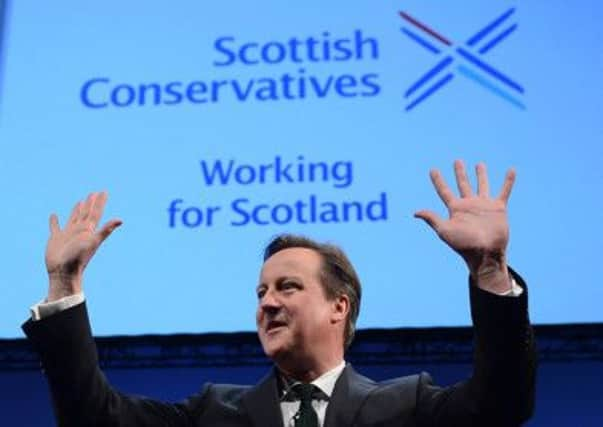Scottish Independence: Cameron won’t resign


He spoke in the wake of claims by some MPs that he would have “little choice” but to go if the 300-year-old Union is dissolved.
Asked if he would quit if he presided over the break-up of the UK, he said: “My intention is to spend every one of the next 364 days before the next general election making sure we put in place every part of this long-term economic plan that is turning this country around.
Advertisement
Hide AdAdvertisement
Hide Ad“At the end of that process, it will be for the British public to decide whether I keep my job or lose my job. That’s the way it should work in a democracy.”
He added: “My name is not appearing on the ballot paper. It is not about my future, it is about Scotland’s future.”
Mr Cameron’s comments came amid growing concern in Westminster at the narrowing polls between the Yes and No campaigns. Last month, a landmark ICM poll put the No vote at 52 per cent, with 48 per cent in favour of Scotland going it alone, when the 19 per cent “don’t knows” were excluded from the equation.
Mr Cameron insisted he did not regret agreeing to the staging of the referendum, saying it was not possible to hold Scots in the UK against their will.
Mr Cameron told BBC Radio 5 Live: “I believe, as Prime Minister, I did the right thing by enabling this vote to go ahead, but the vote is about whether Scotland stays in the United Kingdom or separates itself from the United Kingdom. It is not about my future.”
The Prime Minister said he believed he had shown “respect” to Scottish voters by offering them a referendum which was “legal, decisive and fair”.
He added: “In the end, you can’t hold people in an organisation against their will and that is the case with the United Kingdom and the case with the European Union. So I think I have taken the right decision to answer these questions about Britain’s future, rather than duck them.”
Later, Mr Cameron suggested that Ukip and the Greens could take part in a televised leaders’ debate ahead of the general election. Mr Cameron has said he was interested in staging a variety of debates, which could include one featuring the five main UK party leaders and another which would pit him against Labour’s Ed Miliband, as the two men who could become prime minister.
Advertisement
Hide AdAdvertisement
Hide AdBut Ukip leader Nigel Farage said he still expected the Prime Minister to dodge a debate with him, predicting that Conservatives will find a reason for opting out once discussions got under way between the parties and broadcasters in the autumn.
Mr Cameron has already been accused by the SNP of running scared by avoiding agreeing to a televised debate with First Minister Alex Salmond on independence.
On Monday, Deputy Fuirst Minister Nicola Sturgeon asked: “Why on earth is he not happy to publicly debate his position? The Prime Minister should stop snubbing Scotland.”